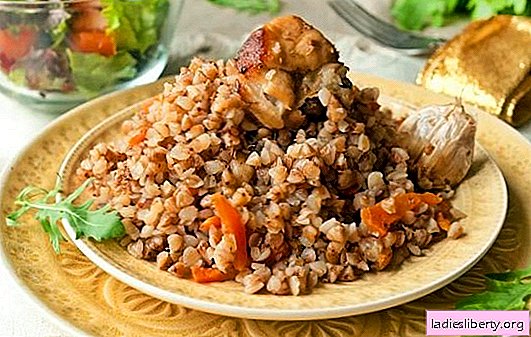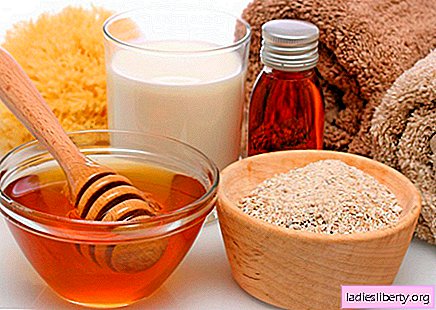
Cow's milk, the benefits of which are explained by the large number of beneficial substances contained in it, is a product known to mankind since ancient times.
However, in recent years there have been different opinions about the benefits of cow's milk: a number of researchers still consider milk the most useful and necessary product for humans, while others say that the product is deficient and has a negative effect on the human body.
To understand which opinion is more correct, you should carefully study the arguments of opponents and supporters of milk consumption.
Cow's milk - source of origin, processing methods and chemical composition
Cow's milk is a product of the secretion of its mammary glands. In this case, the most useful is the milk that is inside the mammary glands of a cow and has never come into contact with air. The reason for this is that in milk that has been exposed to air, fats are partially oxidized. However, even such milk does not lose its nutritional value for the human body.
Calorie content of cow's milk 52-64 kcal per 100 grams depending on fat content. Cow's milk contains a number of substances necessary for the human body. First of all, it is vitamin B12. This substance is vital for the proper functioning of the human nervous system, and is also involved in the process of hematopoiesis. It also contains other B vitamins, vitamins D, E, PP, beta-carotene, lactose and others. Milk contains proteins, fats, carbohydrates and amino acids that are beneficial to humans. There are a lot of microelements in cow's milk, among which calcium is the most valuable. The chemical composition of cow's milk is constantly changing depending on various factors: the stage of lactation in the animal, the breed of the cow, its nutrition and conditions.
In general, given the modern methods of production and storage of milk, we can distinguish such kinds of this product:
• Whole milk. It is a completely natural product that has not been subjected to any effect other than straining. Heating, diluting, degreasing, evaporating changes the initial chemical composition of milk, such a product can no longer be called whole milk. Now, such milk can only be purchased on agricultural farms and from villagers.
• Pasteurized milk. Milk that has been heated can be called pasteurized. There are several ways to pasteurize milk: prolonged pasteurization, in which the product is heated to a temperature of 63 - 65 ° C for half an hour; short pasteurization, in which the milk is heated for one minute to 85 - 90 ° C; instant pasteurization, which is carried out in a few seconds, while the product is heated to 98 ° C. Such processing is carried out to destroy various microorganisms in milk, as well as to increase the shelf life of this product. Many experts believe that the nutritional value of such a product is practically unchanged. However, other researchers believe that the value of such a product is significantly lower compared to whole milk, since the proteins, vitamins and trace elements in milk under the influence of elevated temperatures change their relationships and formulas.
• Ultra-pasteurized milk is a product made by a single heating of whole milk to 125 - 150 ° C for 2-3 seconds. After that, the milk is poured into sterile packaging under sterile conditions. This processing method allows you to store milk for more than a month. However, this treatment destroys almost all the beneficial substances in milk.
Cow's milk - health benefits
The chemical composition of milk makes it a unique source of nutrition for humans. It has a significant positive effect on our body and provides it with the necessary vitamins and minerals.
So, thanks to a lot of calcium, milk positively affects the condition of the teeth, bones of a person. Therefore, people who consume milk reduce the risk of dental problems. Milk is also recommended to keep bones strong and reduce the risk of osteoporosis.
Protein, which contains a large amount of cow's milk, promotes the growth and strengthening of human muscles. Therefore, this product is especially popular among athletes seeking to build and strengthen muscle mass.
Vitaminscontained in cow's milk help reduce stress in humans. Therefore, a glass of warm milk is the best way to relax and relieve the stress that has accumulated during the day. It can also reduce the manifestations of premenstrual syndrome in women, relax the body and reduce nervous tension during this period.
Scientists in the UK, having analyzed numerous studies, have come to the conclusion that milk helps lower blood pressure, reduces the risk of stroke and other cardiovascular diseases. In addition, cow’s milk helps to get rid of heartburn, helps to improve digestion, gives a person a feeling of fullness and, thus, helps to reduce weight.
Thus, milk is a healthy and tasty natural product that can support the human body in good physical shape, and can also serve as a prevention of various diseases. Therefore, many people should include this product in their daily diet.
Cow's milk - harm to humans
Many scientists speak not only about the benefits, but also about the dangers of milk. In particular, frequent allergic reactions for milk. Such reactions cause intolerance to milk sugar (lactose), which is found in 15% population. This intolerance is expressed as follows: after consuming milk, a person begins a strong bloating and diarrhea. Allergic reactions to casein protein, which is found in large quantities in cow's milk, are also not uncommon.
However, when talking about allergic reactions to milk, it should be borne in mind that the frequency of these reactions is different among different nations. Representatives of the European ethnos do not tolerate milk intolerance very often, on average it is 2-5% of the ethnos. At the same time, the intolerance of milk is much more common among the peoples of Asia and Africa, up to 50-75% of the ethnic group. This is because European peoples are better than Asians and Africans to use this product at the genetic level.
Also many theorists vegetarianism and raw foods talk about other cons of consuming cow's milk. So, according to some researchers, the acidity of the gastric juice increases from milk, which increases the risk of developing stomach ulcers.
A number of scientists believe that drinking cow's milk increases the risk of breast cancer, prostate cancer, and bladder cancer. However, which component of milk increases this risk is not known. Some scientists blame milk sugar for this, others - the hormone estrogen, which is found in milk. At the same time, milk is known to reduce the risk of developing bowel cancer.
It is worth noting that modern milk producers very often inject animals hormonal drugs and antibiotics. Such methods, of course, adversely affect the quality of milk and its beneficial properties. In this context, the most useful can be called the milk that is produced by farmers in villages where cows live in natural conditions, eat fresh food and grass, are not exposed to hormonal drugs and antibiotics.
Cow's milk in the diet of pregnant and lactating women
Pregnant and lactating women have a great need for calcium, protein and vitamins. To satisfy this body need, they should include cow's milk in their diet. The benefits of this product during pregnancy and breastfeeding are explained by the following:
• Milk is a source of calcium necessary for the formation of the skeletal system and the baby. This product also helps to replenish the reserves of calcium in the mother's body.
• Milk during pregnancy and feeding the baby becomes a source of protein of animal origin, which is necessary for the formation of the fetus and the proper physical development of the baby.
• The use of milk has a positive effect on the condition of the skin, hair and nails of a pregnant woman.
• Milk sugar contained in milk promotes better absorption of calcium. It also helps strengthen immunity.
Thus, cow's milk and other products made from it are indispensable both during pregnancy and during breastfeeding. Except in cases of individual intolerance and allergies.
Cow's milk for children: benefit or harm?
For many years, cow's milk was considered an appropriate food for babies whose mothers could not feed them with their breast milk. However, the latest research shows that feeding babies with cow's milk is not as beneficial and safe as previously thought.
Of course, cow's milk contains many useful elements. However, such a composition of milk is not at all beneficial for the baby’s body, since it is not able to absorb these substances.
• Enzymes in cow's milk are not normal for a baby. Therefore, his body will not be able to fully absorb such nutrition, and undigested food debris will irritate the baby’s intestines.
• Too much casein protein in cow's milk can cause allergic reactions;
• Too high fat content of cow's milk causes overloading the child's body;
• The amount of vitamins and iron in cow's milk is not enough for the growing body;
• And on the contrary, there are too many minerals in cow's milk. Therefore, feeding with cow's milk can cause too much stress on the baby's kidneys.
For the reasons listed above, modern doctors do not recommend feed babies with cow's milk up to 2 years old. Breast milk is the ideal diet for these babies, and if breastfeeding is not possible, you need to find the right mix whose composition is as close as possible to the composition of breast milk.
Thus, the harm and benefits of consuming cow's milk depends from many factors: from the processing methods to which the product was subjected, from the conditions in which the animal lives, from the individual characteristics of each person and other factors. Therefore, the question of the need to use this product, each person must decide individually, taking into account their individual characteristics.











